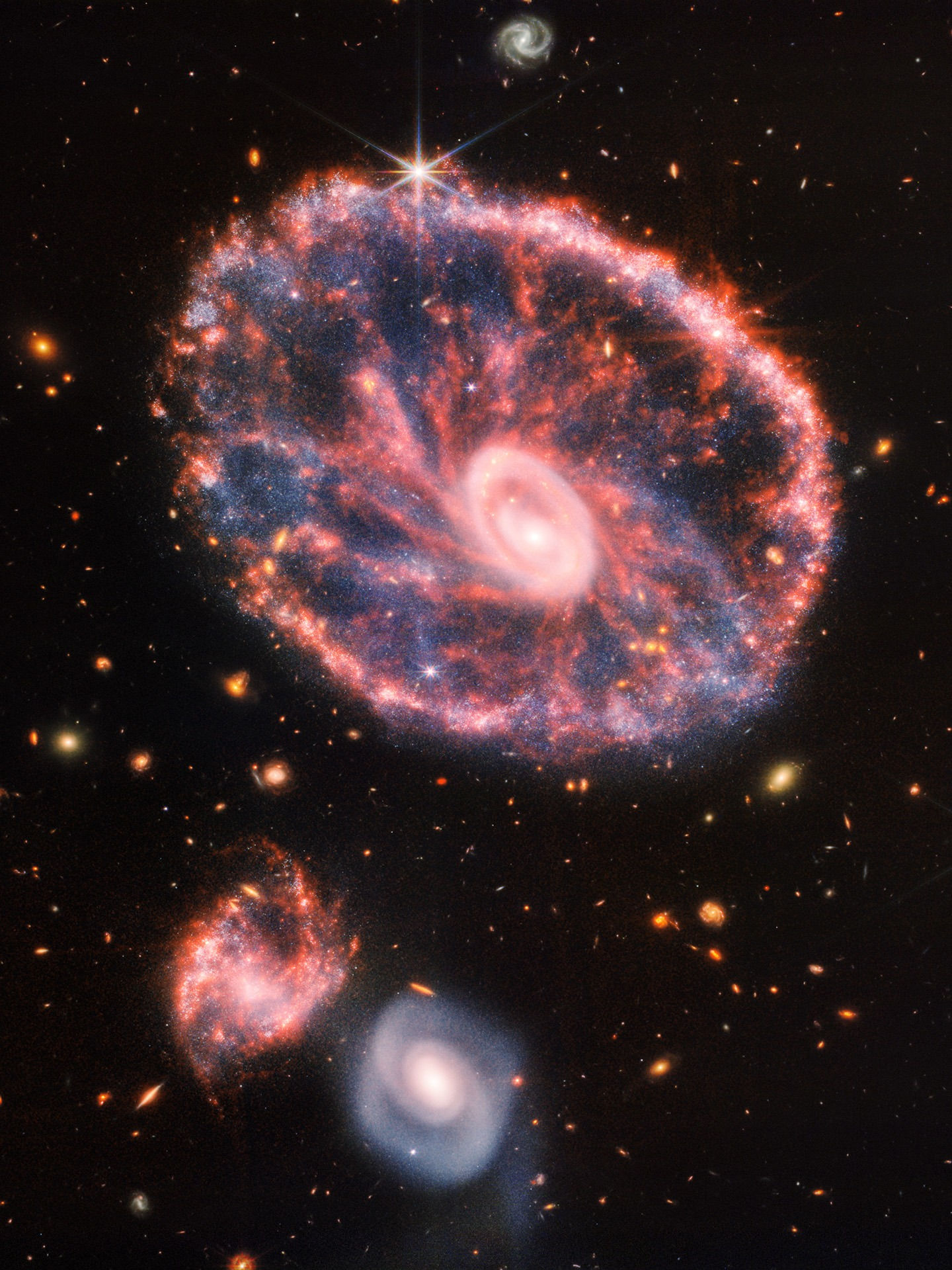The Ultimate Guide to Time in Physics - Why Time Isn't Infinite but Neither Finite?
- Phystroid
- Feb 13, 2023
- 7 min read
Updated: Feb 28, 2023

Time is a fundamental concept that has been used by humans for millennia. From the earliest civilizations to modern times, measuring time has been a crucial tool for organizing human activities and improving our understanding of the natural world.
One of the earliest methods for measuring time was the use of sundials. Sundials were used in ancient Egypt as early as 1500 BCE, and they were widely used throughout the ancient world. These devices used the position of the sun in the sky to indicate the time of day, allowing people to divide their day into discrete intervals.
As human societies became more complex, the need for more precise timekeeping became more pressing. In the Middle Ages, mechanical clocks were invented, which used a system of gears and weights to measure time with greater accuracy than previous methods. This allowed people to schedule their activities with greater precision, and also enabled the development of new technologies, such as the steam engine, which required precise timing to function.
Today, time is measured using a variety of methods, including atomic clocks, which use the vibration of atoms to measure time with incredible accuracy. Time is used in countless ways in modern society, from scheduling appointments to coordinating international trade and transportation.

Time is an important component for every parameter of life on Earth.
The benefits of measuring time are many. By knowing the time of day or year, we can plan our activities more effectively and make the most of our limited resources. Measuring time has also enabled us to understand the natural world in new ways, such as tracking the movement of the stars and planets, and studying the cycles of the seasons.
Additionally, measuring time has allowed us to develop new technologies and systems that have transformed human society. From the development of the steam engine to the invention of the internet, accurate timekeeping has been a key factor in the progress of human civilization.
In conclusion, time has been a crucial concept throughout human history, and the benefits of measuring time are clear. By understanding the passage of time and developing methods for measuring it accurately, we have been able to achieve remarkable advancements in science, technology, and human society as a whole.
There are many possible ways to measure time, but all of them involve a relative comparison of the duration of an event to the most basic unit of time.
For example, we can measure time with respect to the periodic motion of the Earth around the sun, or the vibrations of atoms in a crystal. Without these reference points, there would be no way to determine the duration of an event or to compare it to other events.
This highlights the fact that our understanding of time is intimately tied to our understanding of the physical universe and its underlying laws. The idea that time is a fundamental aspect of the universe, rather than a human invention, is a consequence of the fact that movement and change are also fundamental aspects of the universe, and that time provides a way to measure and describe these changes.
If you are interested to learn more about time in the context of mathematical astronomy you are strongly advised to read this article.
Time and modern physics

Artistic illustration of a black hole. Black holes are objects with extremely strong gravitational fields and cause a significant time dilation. We can think of gravitational time dilation as restricted movement due to strong gravity.
What Einstein taught us is that there is no absolute time. Experiments have proven him correct. There are only two ways that we can play with time, but it would be unfair to call this game a real time travel. The first is what Einstein called "Special Theory of Relativity or SR", and the second is the "General Theory of Relativity or GR". According to the SR, time is relative with respect to the velocity of an object, and according to the GR, time is relative with respect to position and gravity. If we therefore change our position, time will become relative. Time is also relative for different strengths of gravity. For a photon time appears to freeze. The same is true for an object on the event horizon of a black hole.

Artistic illustration of photons. Photons are packets of energy without a rest mass, but can be regarded like waves with a specific frequency f, which is related to the energy of the photon with the equation E=hf. Of course according to special relativity, the speed of light is the speed limit, and the speed of light is measured to be the same from all moving frames of reference. This equivalence principle, has as a direct consequence the Lorentz transformations, which predict the relativistic time dilation for moving objects. This means that time should move slower for objects that approach the speed of light.
Time and the Big Bang

The Big Bang is thought to have occurred 13.8 billion years ago. The Universe since then expands and our current models show that the rate of expansion is currently increasing exponentially.
Of course we don't have a theory of everything, which is essential in order to understand time inside black holes and at the moment of the Big Bang. However, time should continue to flow there because if there was no time flow during the Big Bang, the Universe wouldn't start to expand.
Singularities are thought to exist at the center of black holes where we reach infinite drnditirs and time stops. However, this is just a sign that our current theories collapse there, rather than the existence of true infinities. Mathematics should be interpreted with caution when apply them to the physical world.
Next, there exists the philosophical problem of infinite time, or how it is possible for time to be finite. In this article, we will show a way out of this philosophical problem.
In physics infinities signify theory collapse. A Universe, with infinite mass, energy, temperatures, densities, space, time or any other physical quantity is something incomprehensible. A Universe with infinite expandable size should probably have infinite densities during the Big Bang, since space should itself have a material reality in order to expand. In addition, the idea of a wave is extremely common in modern physics, from the idea of a particle or a photon being a wave to gravitational and electromagnetic waves. A wave requires a material medium in order to propagate, and "empty space" is the only medium where such waves could propagate.
The Cyclic Universe

Cosmology is the study of the Big Bang, and the evolution of the Universe. It is an exciting field of research. It has been revolutionised by theoretical models, as well as from the data of space telescopes like the HST.
Although today we might think that our Universe will keep expanding forever, this leads to a singularity: infinite space and time. There should therefore exist a maximum volume of expansion. Once this volume is reached the Universe will have no choice but to start contracting until it reaches the Big Crunch. A new Big Bang will follow and a new cycle will start.
Time like space can't be infinite. However, this is true according to our everyday life definitions of time only. To be more precise the total time in the Universe has to be zero. That's true, the Universe probably has no clock that can track infinity.
Of course we are familiar with positive time because it is the Universe which we are living in. However, in the cosmic sense, we can regard the time of our mirror Universe arising from the contraction of space as negative. After our Universe reaches a maximum volume of expansion, space will start to contract and the clock of Universe which is based on the expansion of space rather than the movement of matter inside the space, will start to run backwards. Hence, the cosmic time will reset to zero when the Big Crunch occurs.
Of course the story doesn't end there. The question that arises is if the new Big Bang that will follow will be identical to ours, or if there will be a way for the Universe to track time with the mutations that arise from each consecutive new Big Bang? In this article we have hopefully already shed light deep into the unknown, however this question that arises, requires a whole new approach to the Universe to be answered, as it delves even more deep into the unkown intrinsic properties of the Universe. Nevertheless, we can safely postulate that according to the anthropic principle it is highly likely that the new Big Bang, should give rise to a new Universe where many constants of nature can take different values. The mutations arising from each new Big Bang will therefore consist a cosmic clock. It is a wild guess, however, even this clock might reset at some time into a default mode.
By exploring this ultimate cosmic clock of Big Bang mutations, with new physics that we will discover in the future we might be able to understand its complete cycle of Big Bangs.
A well known way of thinking about the Universe is viewing it as an entity with total energy of zero. In this sense the Universe can be regarded as equal to nothingness at least from the point of view of matter and energy. The negative gravitational potential energy of space which is acquired upon the expansion of space balances exactly its positive energy and give us a net energy of zero. Perhaps, there is a similar point of view whereby there is negative and positive time which add up to zero.
This theory would solve the philosophical problem an infinite in time Universe or even a finite one. However, although more research is required to conclusively support this theory with observations and robust mathematics, it remains our only reasonable cosmological explanation able to address a multitude of logical problems that arise from infinities.
It is worth noting that the idea of a cyclic Universe is supported by many scientists, including the legendary physicist Roger Penrose.






























































































Commentaires